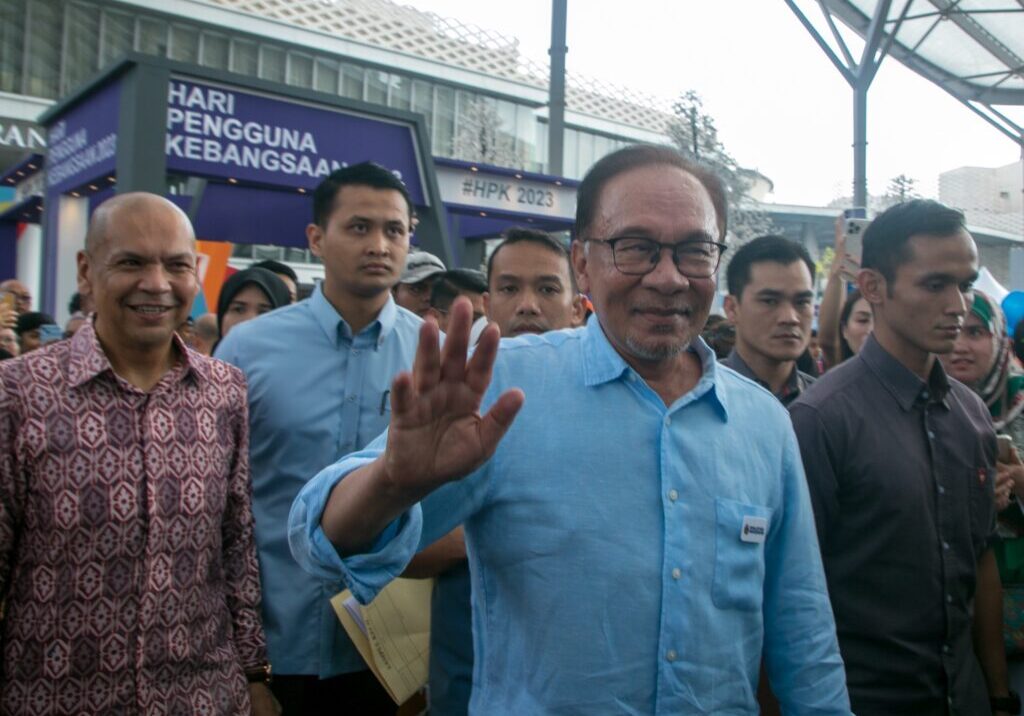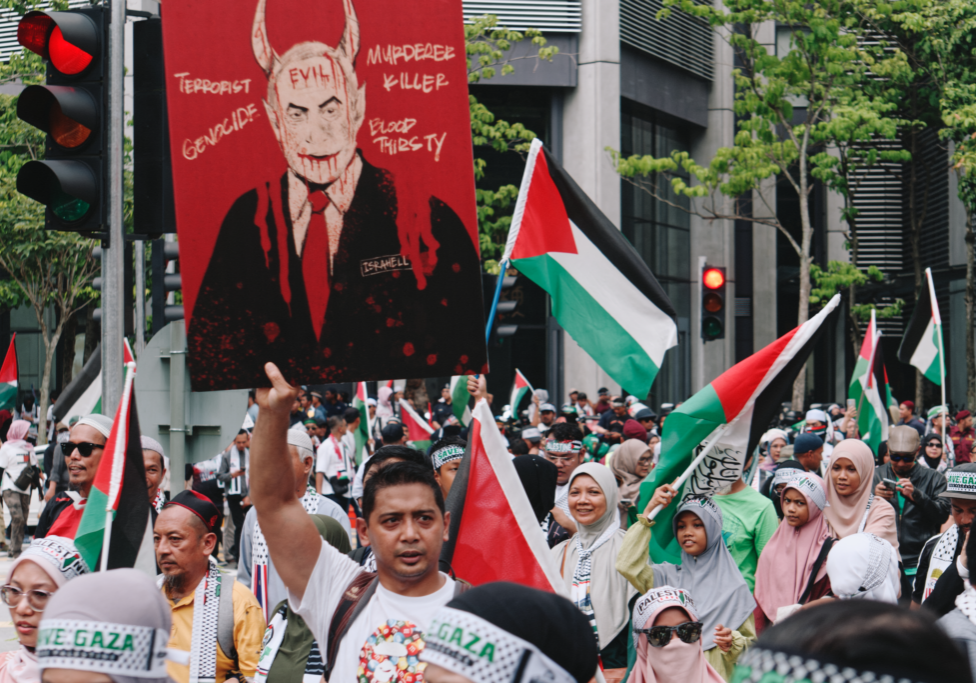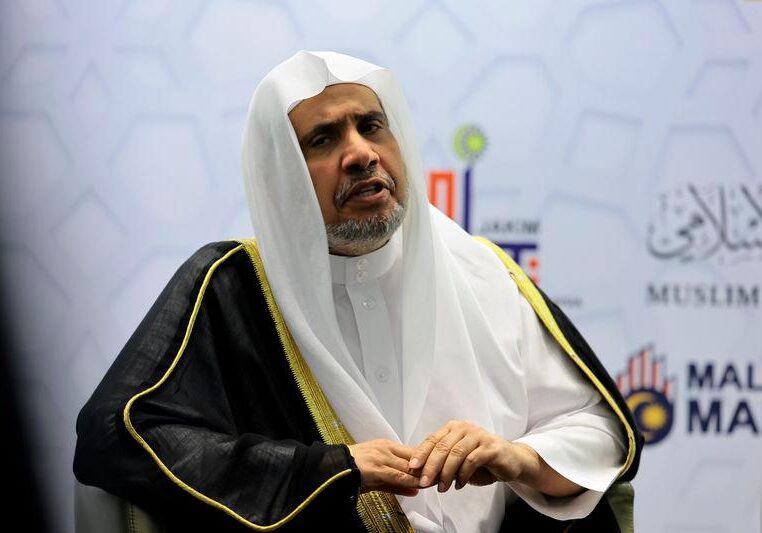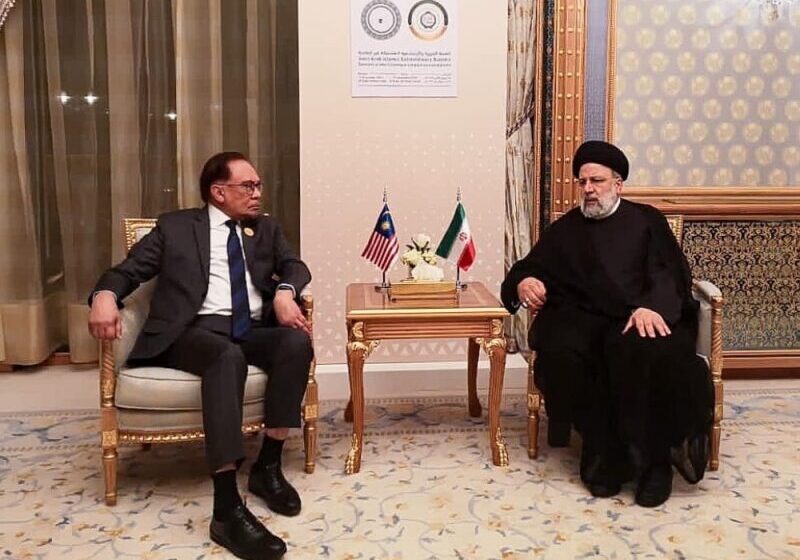Australia/Israel Review
Noted and Quoted – September 2017
Sep 11, 2017 |
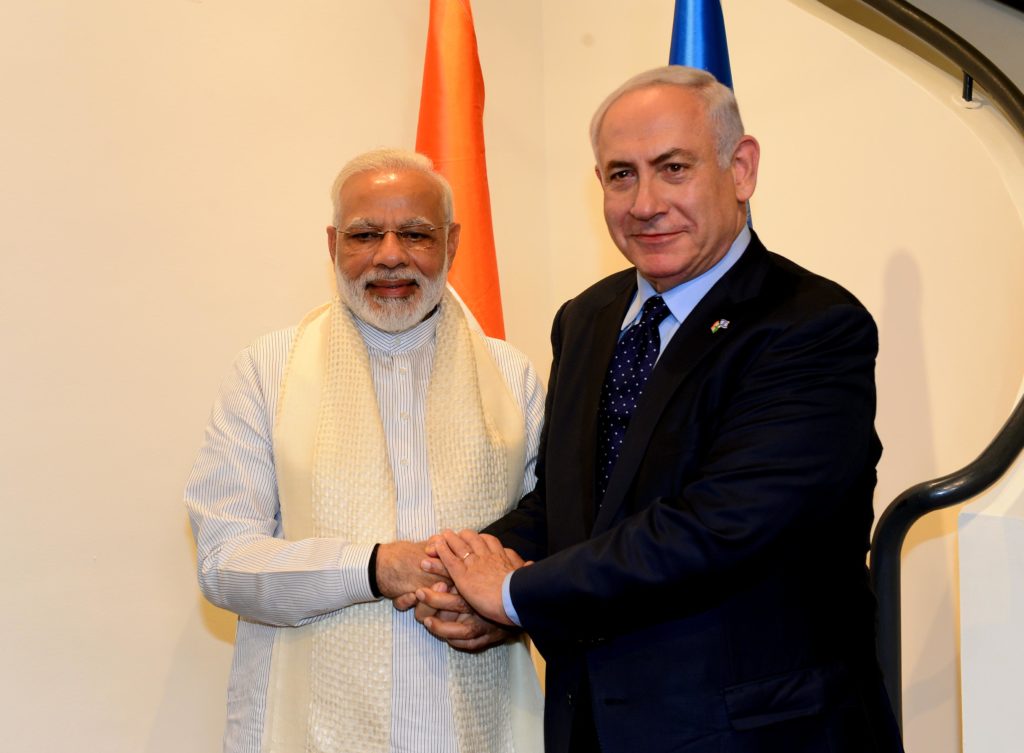
Modi Vivendi
Narendra Modi’s historic first time visit to Israel in July by an Indian Prime Minister was not unnoticed in Australia.
On ABC Radio National “Between the Lines” (Aug. 3), American Enterprise Institute fellow Sadanand Dhume explained the import of Modi’s visit, saying, “This is really a revolution in Indian foreign policy… Not only did Modi visit Israel but he did not visit the Palestinian territories during that visit. He and Netanyahu were virtually inseparable during the course of Modi’s visit and what Modi is essentially saying is that India is a big enough country, is a confident enough country to pursue its national interests with Israel and the Arab world and others are just going to have to suck it up.”
Elsewhere, Rabbi Raymond Apple compared the two nations to “the old British penny-farthing bicycle with its two wheels – a big one (‘a penny’) and a small one (‘a farthing’). Here was a big country, India, and a small one, Israel. The head of the huge Indian nation clearly looked comfortable with the prime minister of tiny Israel, with both prime ministers proclaiming their shared commitment to democracy.”
Rabbi Apple discussed the importance of democratic countries working together as a counter to the moral bankruptcy of the United Nations where “the supposed rule of the majority allows it to gang up against little nations like Israel and let built-in bully blocs drown out the democratic conscience and pass hundreds of undemocratic or anti-democratic resolutions,” ABC “Religion & Ethics” website (July 19).
Well suited
Analyst Keith Suter diplomatically shot down a caller-in on ABC radio who was arguing that Jews/Israel control the world economy, asking how they will respond to changing US influence in the world.
Suter replied, “I don’t share your basic assumption that Jewish money is that significant in world affairs. So, you and I, Stuart are obviously very different on this attitude of Jewish money… The Jews have a variety of opinions. I don’t think there is a unified Jewish point of view, even if you go to Israel, it’s a nation of seven million prime ministers… I’m not sure it’s particularly helpful saying ‘what’s going to happen about the Jewish money anywhere’, cause you’ve clearly got a variety of viewpoints within Jewish communities around the world, so I’m not sure there’s much point in my trying to answer the question.”
On the issue of recognising a Palestinian state, Suter questioned the ALP “buying in” on that issue because Australia has far bigger issues to worry about closer to home, ABC Radio “Overnights” (Aug. 3).
Build it and terrorists will come?
The facts surrounding the NSW Land and Environment Court’s decision to reject a proposed synagogue in Bondi on security grounds may not have been reported entirely accurately, but the Jewish community’s right not to be negatively impacted by the threat of terrorism enjoyed widespread support.
News Ltd columnist Rita Panahi (Aug. 7), elaborated on the tight security Jewish centres and schools need, noting that “Jews remain the biggest target of hate crimes in much of the Western world and face extreme persecution in many countries, particularly in the Middle East and parts of Africa.”
Panahi directly linked global antisemitism levels with extremist Muslim majority countries that either refuse “anyone with an Israeli passport entry to their country, including Malaysia, Bangladesh, Algeria and Brunei” or countries such as Iran, Lebanon, Saudi Arabia, Yemen, Sudan, Libya, Syria and Kuwait that “forbid entry to anyone who has travelled to Israel. That means I cannot visit my parents’ homeland of Iran because I once spent a week in Israel.”
She quoted Rabbi Moshe Sebbag of the Grand Synagogue in Paris saying, “‘The majority of people who are going to call you ‘dirty Jew’ in the street are Muslims, not French, at least 99 per cent of the time.'”
The same day, fellow News Ltd. columnist Andrew Bolt argued that “people may worry that the synagogue or Jewish school down their street could be blown up, sending stray shrapnel into their house. But where does such thinking lead us? Doesn’t it mean no synagogue, Jewish school, Jewish charity or even prominent Jew can live in your street without building defences for all their neighbours and passers-by?”
Daily Telegraph columnist Tim Blair sarcastically wrote (Aug. 7), “Well, so much for Sydney’s second airport. There’s no way the project can proceed now, after the Land and Environment Court’s decision to block construction of a Bondi synagogue on the grounds it may attract terrorists. Islamic extremists are notoriously fond of attacking airports.”
TV talk
On Sky News, Paul Murray, Graham Richardson, Michael Kroger and Dee Madigan couldn’t understand the logic of the Court’s decision given the large number of existing synagogues in the area.
Kroger widened the discussion, saying there is an “underground racism against Jews” in Australia, pointing to the BDS movement against Israel which “has support from a whole lot of people”.
Richardson said he has a lot of problems with Israel “at the moment” but “you can’t get up at an Australian university and support Israel in any shape or form, you will not be given a forum. You will be howled down if you try and that’s just not my version of free speech,” Paul Murray Live (Aug. 7).
Recognition blues
Australian Friends of Palestine Association’s Mike Khizam was understandably not happy that the South Australian Upper House rejected a Palestine recognition motion.
Khizam attempted to re-prosecute the case in an op-ed replete with the usual propaganda, “recognition is designed to help force the Israelis to engage in genuine negotiations and to stop activities, like settlement building on Palestinian land, that undermine the possibility of peace.
“Recognition by countries like Australia helps the prospects of peace by sending a strong message to Israel that it cannot keep whittling away at the Palestinian territories and that its military occupation cannot continue indefinitely.”
Recognition is anything but an attempt to “force” Israel into “genuine negotiations”. It is widely understood in the West as joining PA President Abbas’ gambit to win statehood without making any concessions for peace or indeed ending the conflict.
This is why Abbas has refused to negotiate in genuine faith since he rejected “out of hand” – in his own words – the offer of a state made by former Israeli PM Ehud Olmert in 2008, Advertiser (Adelaide) website (Aug 14).
Carr overheats
Speculation that the NSW State Labor conference would ultimately vote to unilaterally and unconditionally recognise a Palestinian state was premature but that didn’t stop former foreign minister Bob Carr claiming an unwarranted victory.
SBS TV “World News” Marija Zivic’s report was focused on Carr’s campaign to convince Federal Labor and claimed that “Labor’s NSW branch has backed a move to unconditionally recognise a separate Palestinian state.” The report did include some balance however.
Australian Senior Writer Troy Bramston’s story (July 31), by contrast, sounded like it could have been penned by Carr, stating that “the motion passed this weekend goes further than ever before to bind Labor closer to Palestine. It is a significant defeat for Bill Shorten, his belligerent Victorian right faction and the aggressive Israel lobby, who applied immense pressure on Labor MPs and party officials in recent weeks.
“There is no mention of a ‘two-state solution’ as a precondition to supporting Palestinian statehood or any reference to ‘consulting’ with ‘like-minded’ nations before granting recognition – the current federal policy – which gives Labor wriggle room… A few months ago, Bob Hawke said Australia should join the 130-plus other nations and grant diplomatic recognition to Palestine. So did Kevin Rudd and Gareth Evans.”
Top marks then go to ABC political reporter Stephen Dziedzic for bringing a reality check to the coverage, noting amongst other things that some “countries which recognise Palestine are just hostile to Israel’s very existence” and that “most Western countries haven’t gone down this path – and neither has Australia.”
Dziedzic wrote, “So – was there a winner? When it comes to the Israel-Palestine conflict, small changes in language can matter a lot. So let’s take a close look at what the motion says. The NSW motion urges the next Labor government to recognise Palestine. But it also notes that Labor ‘supports the recognition and right of Israel and Palestine to exist within secure and recognised borders.'”
He also asked, “Do any of these motions actually force a Labor government to do anything? No, it doesn’t. In fact they might just ignore it entirely…[Opposition Leader Bill] Shorten and [foreign affairs spokesperson] Senator Wong have made it clear they’re not rushing to embrace unilateral recognition,” ABC online (July 31).
Abbas’ abuses
ABC Middle East correspondent Sophie McNeill’s report on the arrest by Palestinian Authority security forces of five Palestinian journalists shone a rare spotlight on human rights abuses under Palestinian President Mahmoud Abbas’ regime.
McNeill noted that Abbas is “12 years into what was supposed to be a four-year term,” with polls showing that two-thirds of Palestinians want him to resign.
American analyst Grant Rumley was quoted describing the crackdowns as “ultimately creating a police state” and criticised US Administrations, including Obama and Trump, for not condemning previous abuses under Abbas, ABC Radio “AM” (Aug. 14).
Inclusivity counts
The Barcelona terror attack involving a van as the means of violence saw many editorials and news articles listing the many similar incidents over the past few years. Too often Israel, which has been subject to vehicular terrorism on a large scale, was omitted from inclusion.
But to its credit the Herald Sun editorial (Aug. 19) explicitly referred to Israel and did so within the context of Islamist terrorism:
“The need to maintain effective contact and information flow is often the reason plots are identified before they reach a murderous conclusion. It is one of the main reasons senior personnel in police and security agencies, and to some extent political leaders, resist describing attacks and plots as simply Islamic terrorism. There are valid arguments for calling this type of terrorism exactly what it is and what motivates it – Islamic extremism. But nuance is important. It is driven by minority elements of both Shia, mainly against Middle East targets and Israel, and Sunni faiths, particularly Salafi jihadism against the West. Indeed, the Islamic community, here and overseas, must be the central cure for these Islamic threats.”
Citizenship inanities
The growing list of federal politicians ensnared by the Australian constitution’s requirement that MPs not hold dual citizenship, proved yet again how timeless the dual loyalty accusation against Jews is.
The Herald Sun (Aug. 16) ran a letter from a reader called “Claudius,” with no surname or address printed, which asked, “Have Mark Dreyfus and Josh Frydenberg ever renounced their Israeli citizenship?”
Unless Dreyfus and Frydenberg have applied for Israeli citizenship, they are not automatically given it by Israel, unlike some of the parliamentarians who allegedly have automatic “citizenship by descent” from countries like Britain and New Zealand.
Elsewhere, the NT News (Aug. 18) ran a crazy letter attributed to “Darwin resident 20 years” asserting that “The holding of dual citizenship is relevant if it could be demonstrated that allegiance to the former country was shown at times of election or support for wars. Did the war, Yom Kippur [sic] in Israel and other similar matters elsewhere receive support in Australia from dual citizenship holders? Seems important to get it right.”
In what way did the 1973 war involve Australia?
Eran On
AIJAC guest Dr. Eran Lerman, former senior Israeli security and foreign affairs adviser, was a major hit in Australia.
He told ABC TV News 24 “World” (Aug. 10) that the peace process faltered in 2014 because Palestinian President Mahmoud Abbas walked away from the Kerry talks and that recent Palestinian violence on Jerusalem’s Temple Mount did not receive regional support from the Saudis or Egyptians, only by Qatar which had an interest in diverting attention from its own troubles.
The Advertiser (Adelaide) website ran his op-ed (Aug. 11) praising the decision of the state parliament’s upper house to reject Palestinian statehood recognition because “those who feed” the delusion” that Palestinians have a better alternative to negotiations with Israel “are selling the Palestinian people a dangerous hallucinogenic drug.”
On Radio 2GB “Alan Jones Breakfast Show” (Aug. 16), Lerman said Palestinian violence has sporadically broken out since the 1920s and that there is a refusal by their leaders to accept that Jews have a right to self-determination in their ancestral homeland.
“We are a legitimate presence, not a colonial presence,” he said, and the Palestinian failure to accept that is part of what has “kept us away from a successful negotiation but we accept in principle that ultimately we will need to share this land on equitable terms but this can only happen at the negotiating table.” A signal of a change will be when the Palestinian Authority stops rewarding terrorism, he added.
Howlers in the night
A 50-minute segment on ABC Radio National “Nightlife” (Aug. 9) featuring ANU Distinguished Professor Amin Saikal and Lowy Institute analyst Rodger Shanahan was a comedy of errors.
The ostensible topic, the history and legacy of the British and French carve-up of the Middle East post-WWI, quickly degenerated into discussion of the Israeli-Palestinian conflict.
Saikal claimed that Zionism’s “first demand was that… [Jews] should be allowed to return to Palestine which they regarded as the Promised Land to the Jewish people.”
Zionism’s founders were overwhelmingly secular and claimed a legal right for Jewish self-determination in their ancestral land, not a promise from God.
Dabbling in conspiracy theory, Saikal said British Secretary of State Arthur Balfour, whose eponymous 1917 declaration endorsed Zionism, “was himself of Jewish origin”.
False. Balfour belonged to an aristocratic Scottish family.
According to Saikal, the “intention” of the Zionists in creating the Jewish “militia”, the Haganah, was “to really entrench their position” in Mandatory Palestine.
The Haganah was a self-defence force established with the explicit aim of protecting lives following Arab riots in the 1920s.
A caller asked when Biblical Israel became Palestine. Saikal responded, “there was an Israeli kingdom under King David and King Solomon which existed in 10th (century) BC but it only lasted 70 years. And then after that… the Arab settlers of that area had historical precedence.”
The Arab conquest did not occur until the 6th century, so what happened in the interim?
Well, according to Saikal, “the Romans… destroyed the first Jewish temple which was I think in 60 BC.”
It was the Babylonians who destroyed the first Temple in 586 BCE – after Jewish kingdoms ruled the areas for roughly 500 years – and the Romans destroyed the second in 70 C.E. after further Jewish-dominated kingdoms existed.
The Romans, he said, “expelled [the Jews] from Jerusalem and they moved to Europe” where they were persecuted for centuries. This ultimately led to Zionism for which the Palestinian Arabs are “paying a very heavy price”.
Saikal clearly sees Zionism as a European colonialist project. He apparently doesn’t understand that between the fourth and seventh centuries C.E., Jews still lived in large numbers in the Holy Land and repeatedly tried to rebuild the Temple but these efforts floundered under Christian and then Islamic ascendency. Moreover, some Jewish communities remained continuously in the area until the start of Zionism.
Further, vibrant Jewish communities dating back thousands of years existed across the Middle East but were largely ended following Israel’s creation, when Arab persecution forced 850,000 or more Jewish residents to flee. The vast majority sought refuge in Israel and their descendants constitute close to half of Israel’s population.
Saikal said settlements have destroyed the two-state solution and cover what amounts to 45 per cent of the West Bank (they cover less than 2 per cent) and that Gaza “is the most densely populated land in the world” (it ranks 40th most densely populated).
Shanahan claimed that after the 1967 Six Day War “Israel moved its capital to Jerusalem”. Jerusalem became Israel’s capital in 1949.
He also airbrushed from history Israeli offers of a Palestinian state in 2000-01 and 2008, claiming ridiculously that the closest the Palestinians came to a state happened during Yitzhak Rabin’s prime ministership in the mid-1990s.
You really can’t make this stuff up – except, clearly when discussing Israel, you can!
Tags: Australasia, Malaysia

